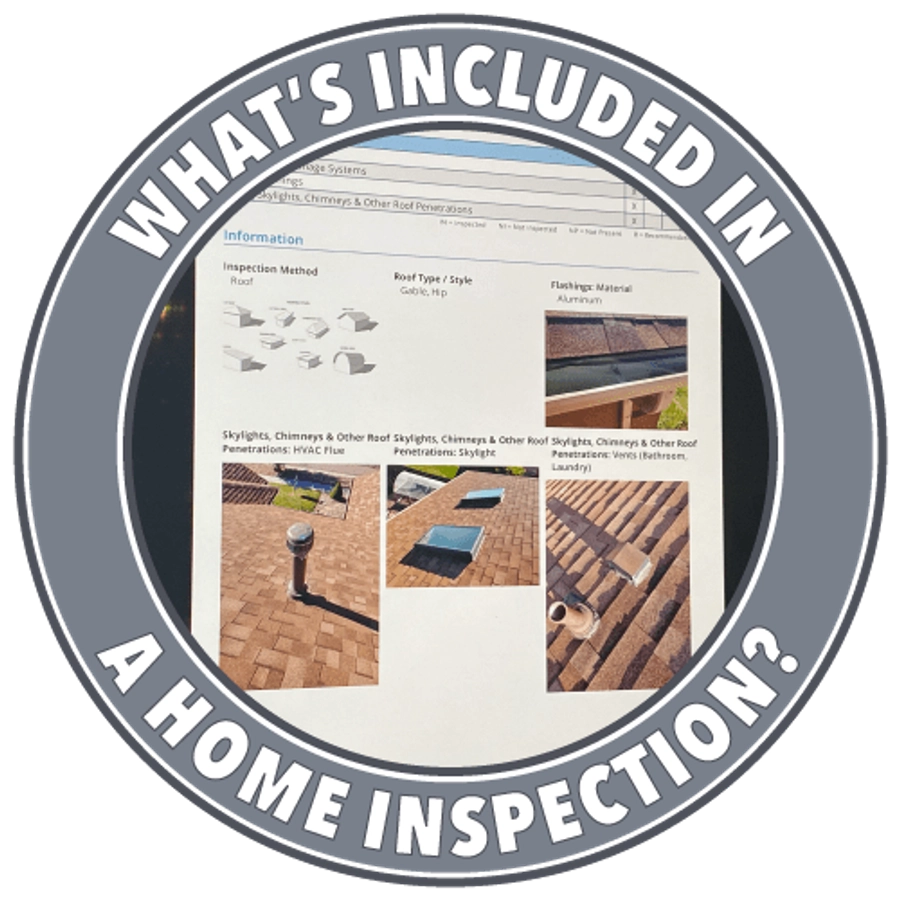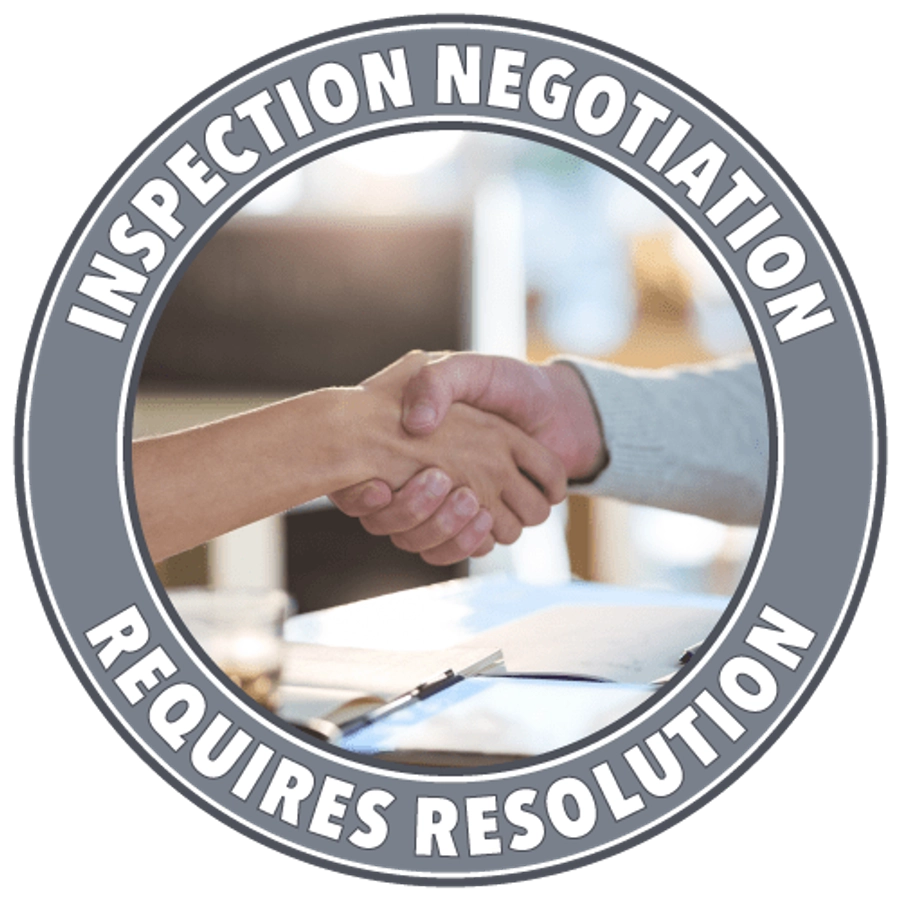Thinking about buying a house? One big question for many buyers is whether to get a home inspection. In hot housing markets, some people feel pressure to skip the inspection to win a bidding war, but this can lead to regret later.
Most real estate experts strongly recommend a professional home inspection before you buy. In fact, about 86 percent of buyers hire an inspector, according to the National Association of Realtors. This step gives you an extra layer of security by revealing issues that are not easy to spot during a normal showing.
During a home inspection, a licensed professional examines the house closely, from the roof to the basement and everything in between. Buyers often have questions about what inspectors look for and what happens if the report lists problems. The inspection gives you the chance to ask for repairs or adjust your offer if something big needs fixing.
Skipping a home inspection may save a little time, but it can end up costing you more if major repairs pop up after you move in. A good home inspection is a smart investment and protects your wallet in the long run. Keep reading to learn what happens during the inspection process and how it can help you buy with confidence.
Why You Should Hire a Home Inspector
Getting a home inspection is one of the smartest steps you can take when buying a house. A home inspector carefully checks the main parts of a home that you can see and reach. Their goal is to help you find any problems or hidden damage before you buy. Fixing these issues later can be costly, so catching them early can help save you money.
.png) If the inspector finds problems, the seller may cover the cost of important repairs. Repairs can be much more expensive than an inspection itself. Since the sale of the home depends on the repairs, most sellers will try to fix things the right way. If you and the seller disagree, you can discuss taking money off the price instead of asking for the repairs.
If the inspector finds problems, the seller may cover the cost of important repairs. Repairs can be much more expensive than an inspection itself. Since the sale of the home depends on the repairs, most sellers will try to fix things the right way. If you and the seller disagree, you can discuss taking money off the price instead of asking for the repairs.
A home inspection helps keep you safe from hidden dangers and big surprises. It does not catch everything, only what can be seen on the day of the visit. Still, it is a trustworthy way to learn more about your future home. As real estate professionals, we know how much a good inspection matters for peace of mind and smart decision-making.
The Basics of a Home Inspection
Getting a home inspection is an important step when buying a house. Let's talk about the basics.
Here are some key questions many home buyers ask:
As someone who works in local real estate, I see these questions often. Understanding each step can make your journey smoother. Click any topic above to learn more about how the home inspection works in our city.
Let’s review these questions now.
Who Pays for the Home Inspection?
Usually, the home buyer pays for the home inspection. As the buyer, you get to choose a trusted home inspector who will check the whole house from top to bottom. This step gives you peace of mind about the shape of your new home.
 Some sellers decide to have a home inspection before they list their property for sale. This can be helpful when selling your home. The inspection points out repairs the seller can handle before showing the home. Most sellers skip this step and leave the inspection to the buyer.
Some sellers decide to have a home inspection before they list their property for sale. This can be helpful when selling your home. The inspection points out repairs the seller can handle before showing the home. Most sellers skip this step and leave the inspection to the buyer.
As a buyer, it is best to get your own inspection, even if the seller just had one done. Relying on the seller’s inspection report is risky since their goal is to sell their property. A fresh inspection helps you spot any hidden problems. This is why, in most cases, the buyer is responsible for hiring the home inspector and paying for the service.
Getting your own inspection keeps you informed. It helps you make confident decisions about your new home.
How Much Does a Home Inspection Cost?
The price for a home inspection usually ranges from $250 to $450. The final cost will depend on the size, type, and age of your house. If you live in a busy or high-cost city like New York, the price may be higher and can reach $1,000 or more. The price of your home does not usually affect the inspection fee. You can learn more about common fees when buying a house here.
Keep in mind that a basic home inspection checks for general problems. You may also want to schedule extra inspections for things like radon, mold, sewer lines, the building’s structure, or HVAC systems. Each extra check may cost more, so it is smart to plan for these added costs when buying a home.
When Does the Home Inspection Happen?
Most home inspections happen just a few days after you agree to buy a house. After both sides sign a sales contract, the buyer will first pay their earnest money. Then it is time to book the home inspection. Many home buyers ask their Realtor to help with the scheduling. This step is important because it lets you see if anything in the home needs fixing before you move in.
Some sellers choose to do a home inspection before putting their home up for sale. About twenty percent of home inspections are paid for by the seller. This can help the seller spot and fix problems early. More sellers are choosing this option in some neighborhoods.
Should the Buyer’s Agent Go to the Home Inspection?
 Many people wonder if their buyer’s agent should be at the home inspection. The answer depends on where you live. In some states, it is fine and even helpful for a buyer’s agent to attend. In other places, real estate groups suggest that realtors stay away from inspections to avoid any influence on the inspector’s job. If you are not sure what is best, ask your agent or check your local rules.
Many people wonder if their buyer’s agent should be at the home inspection. The answer depends on where you live. In some states, it is fine and even helpful for a buyer’s agent to attend. In other places, real estate groups suggest that realtors stay away from inspections to avoid any influence on the inspector’s job. If you are not sure what is best, ask your agent or check your local rules.
No matter what, the most important thing is for you as the buyer to feel comfortable asking questions and getting honest answers. A good agent will help guide you through this part of buying a home by keeping your best interests in mind. To learn more about what realtors do for buyers, see our page on how realtors help earn their commission.
This problem has been presented in court cases recently, so state realtor associations have recommended that realtors stay out of this process. Every State and brokerage handles this situation differently.
How Long Does a Home Inspection Take?
Most home inspections last about two to three hours. The exact time can change based on the size and age of the home. After the inspection, your inspector will use modern reporting software to send your report, often just minutes after finishing the job. In some cases, it can take a day or two if your inspector uses older methods. As real estate professionals, we always recommend giving yourself enough time to go over the results before making any decisions.
What Is a Home Inspection Contingency?
Most home sales include something called a home inspection contingency. This means buyers have a set amount of time to hire a home inspector, check the property, and ask for repairs if they find any problems.
After the inspection, the seller looks at the report and reviews any repair requests with their agent. Both agents help the buyer and seller agree on which repairs will happen. These changes are added to the final sales contract. Sellers usually have about one or two weeks to fix the items that need work.
The home inspection contingency is a big deal for buyers. It gives you a chance to spot issues before making a final decision. Once this step is done, it becomes much harder for a buyer to cancel the sale. If you are thinking of buying a home, be sure to use this time wisely and work with local real estate experts for the best results.
What Should be Covered in a Home Inspection?
 Here are the main areas that you’ll want to be addressed in your home inspection report:
Here are the main areas that you’ll want to be addressed in your home inspection report:
What Home Inspectors Look for in the Attic
A thorough home inspection always includes the attic. Inspectors check for any rotting or damaged wood, which can signal serious roof or water problems. They also make sure the attic has proper ventilation and no signs of leaks. Good ventilation helps prevent mold and keeps your home energy efficient. Inspectors look for any exposed wires or electrical issues that may be unsafe. If you are moving to a new home, a well-maintained attic adds peace of mind and helps protect your whole house.
What Inspectors Check in the Basement
Inspectors pay close attention to basements because they often reveal hidden problems. They look for cracks in the walls or floor that may point to major foundation issues. Moisture is another key concern. Signs of water damage, like staining or a musty smell, get checked closely. The inspector also tests the sump pump to make sure it is working, which helps prevent flooding. Dry and solid basements keep your home safe and comfortable.
What Happens During a Bathroom Inspection
Bathrooms may look clean, but inspectors need to dig deeper. They check that all the plumbing works, including faucets, drains, and toilets. Each bathroom should have outlets that use GFCI protection, which helps prevent electric shock in wet areas. Ventilation is also important. The inspector will run fans or open vents to make sure steam can escape, lowering the risk of mold. A well-inspected bathroom keeps your home functional, safe, and healthy.
Bedrooms
In each bedroom, a home inspector looks over the ceilings, floors, and walls to check for cracks, damage, or signs of water leaks. They make sure everything is level and in good shape. The inspector also tests all lights and electrical outlets to be sure they work safely. Heating and air flow are checked to confirm that each bedroom stays comfortable year-round.
Kitchen
The kitchen inspection focuses on plumbing, appliances, and safety. Your inspector will test the sink and faucet to make sure the plumbing works properly and that there are no leaks. They check the refrigerator, stove, oven, and garbage disposal to see that they function as expected. The inspector runs the dishwasher and tests water pressure, looking for any slow drains or signs of trouble.
Heating and Cooling Systems
Inspectors review your heating and cooling systems to make sure your home is safe and comfortable. They check for strange smells near equipment, which can sometimes point to gas leaks or other dangers. The inspector turns on the heat and air conditioning to be sure both run smoothly. Finally, they look at vents and filters to confirm that air moves well through the house and that the HVAC system is in top shape.
What Inspectors Look for in Electrical Systems
A home inspector checks the electrical system for safety and code issues. This includes looking at the main electrical panel and circuit breakers to make sure they are not outdated or overloaded. Inspectors look for any exposed wires, loose outlets, or signs of bad wiring throughout the house. They also check that all outlets work as they should and that the home’s network and phone lines are safely installed. Good electrical systems keep your home safe from fires or power problems.
How Plumbing Systems Are Inspected
During a home inspection, the plumbing system gets a full check. The inspector looks for water leaks under sinks, drips around toilets, and signs of old or rusted pipes. The water heater is checked to make sure it is working properly and does not leak. Most inspectors will verify that the water temperature does not go above 125 degrees Fahrenheit to help prevent accidental burns. They also run faucets and flush toilets to make sure the whole system drains and supplies water without any trouble.
What Is Checked on the Roof
The roof is a key part of any home inspection. Inspectors look for missing or broken shingles and signs of hail or storm damage. They check for rotting wood or weak spots around chimneys and skylights. Inspectors also watch for places where water could get inside, since leaks can cause mold and expensive repairs later. Keeping a roof in good shape protects your home from the weather and keeps repair costs lower.
Exterior Structure and Grounds Inspection
Inspectors carefully review the outside of your home for any signs of trouble. They look at the foundation for cracks, trickling water, or bowed walls that could mean the house has shifted. Problems near windows and doors, like cracks spreading outward from the corners, can also point to foundation concerns. In addition to the house itself, inspectors check decks, fences, sheds, and other outside structures for safety and quality. Walking the yard, they watch for anything unusual that could affect the property's value or peace of mind.
What Is Not Included in a Standard Home Inspection?
When you order a home inspection, you get a careful look at the house’s structure, electrical system, plumbing, HVAC, and more. However, some important checks are not part of a basic inspection. Most standard home inspections do not test for water quality, radon gas, or mold unless you ask for these tests. Many modern inspectors offer these as optional add-ons, so you can request extra tests that make sense for your situation.
A regular home inspection also does not cover pest problems or look for asbestos. If you are worried about pests, lead paint, or asbestos, you will need a specialty inspection from a trained expert. These special checks cost extra and may take more time to finish.
If you are not sure which extra inspections your future home might need, talk with your Realtor. A trusted Realtor can help you choose the right tests based on the home’s age, location, and your concerns. Investing in the right inspections now can save you from big surprises later on.
How to Resolve Home Inspection Issues
 After your home inspection, the next important step is sorting out any problems found in the report. You and the seller will need to decide who takes care of each item and which repairs must happen before the home sale can move forward.
After your home inspection, the next important step is sorting out any problems found in the report. You and the seller will need to decide who takes care of each item and which repairs must happen before the home sale can move forward.
Usually, your Realtor and the seller’s agent will negotiate repairs or credits to try to meet everyone’s needs. When you both agree on what will be fixed and who will pay, these details get added to your contract. The seller then has the repairs done and gives you receipts as proof of the work.
Before closing, you will get to do a final walkthrough. This gives you the chance to check that all repairs were completed as promised. Bring your checklist and any notes from the inspection report so nothing is missed.
Sometimes, the inspection may reveal bigger issues than you expected. If major repairs are too costly or cannot be fixed, it is okay to walk away from the deal. Trust your Realtor to help you review your options and protect your interests.
How to Find a Good Home Inspector
Choosing the right home inspector is one of the most important steps when buying a house. An experienced inspector can spot problems you might miss, helping protect your investment and give you peace of mind.
In some states, like Colorado, there is no official license required for home inspectors. This makes it even more important to do a little research before you choose. Start by looking up certified inspectors on the International Association of Certified Home Inspectors website. This listing only shows inspectors who meet strict quality guidelines, so it’s a safer place to begin your search.
You can also ask your local Realtor for recommendations. Real estate agents work with home inspectors all the time and usually know which ones are the most thorough and trustworthy. Ask for two or three names, as the best inspectors can be busy, especially during home-buying season.
Always check reviews and ask a few questions before making your final choice. Find out how long they have been inspecting homes, what their reports look like, and whether they carry insurance. Taking these extra steps will help you feel confident before moving forward with your home purchase.
Summary
In today’s real estate market, homes often sell fast, and sellers do not always agree to make repairs before closing. Even if a contract says "no repairs will be made," getting a home inspection is still one of the smartest steps you can take as a buyer.
A home inspection can reveal hidden issues, even in brand-new houses that have just been built. Small problems now can become big expenses later. Paying for an inspection gives you a clear picture of what you are buying, so you can make a smart decision.
No matter what the housing market looks like, skipping a home inspection can cost you in the long run. Most real estate experts recommend always scheduling a professional inspection before buying any house. This way, you know the full story about your future home and can feel confident about your investment.

.png)













